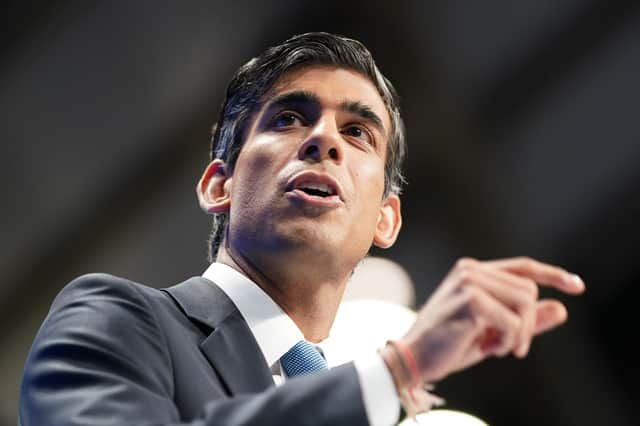Rishi Sunak's windfall tax on energy companies is welcome. But cost-of-living help should have been better targeted at the poorest – Scotsman comment


The Chancellor may have dubbed it a “temporary, targeted energy profits levy” but this is a form of windfall tax as called for by The Scotsman, among others.
It always made sense that some of the vast profits being made by multinational corporations – because of an oil-and-gas crisis made dramatically worse by Russia’s invasion of Ukraine – should be used to help people whose bills are soaring for the same reason.
Advertisement
Hide AdAdvertisement
Hide AdAnd with Vladimir Putin’s forces blocking food exports from Ukraine – one reason why Bank of England governor Andrew Bailey recently warned of “apocalyptic” food price rises – the case for a significant intervention made itself.
At a cost of £15 billion, Sunak’s package of measures is certainly that. The windfall tax is expected to raise about £5 billion, although a generous rebate scheme for firms that invest in UK oil-and-gas projects could reduce that total. As a result, every household will get £400 in October towards their energy bills, while the poorest will get a further £650.
While this will help ease the financial pain, in our opinion, the people who need the money the most should have been targeted more precisely.
For example, instead of giving funds to every household, perhaps those with an earner who pays the higher rate of tax could have been excluded, thereby enabling more money to go to those at the sharp end of this crisis, the people facing that now grimly familiar choice between heating and eating.
Labour leader Keir Starmer's suggestion that the windfall tax U-turn was designed to distract attention from Sue Gray’s Partygate report was cynical, but these are cynical times. If true, the cost of Johnson’s indiscretions in Downing Street is truly eye-watering, a consequence of chaotic government that oil company executives and Conservative MPs opposed to windfall taxes may wish to ponder.
But, whatever the motivation, Sunak’s abrupt conversion to windfall taxes will provide some desperately needed help for those most at risk from the growing economic storm and we welcome it. We also hope that it is enough.
Comments
Want to join the conversation? Please or to comment on this article.
